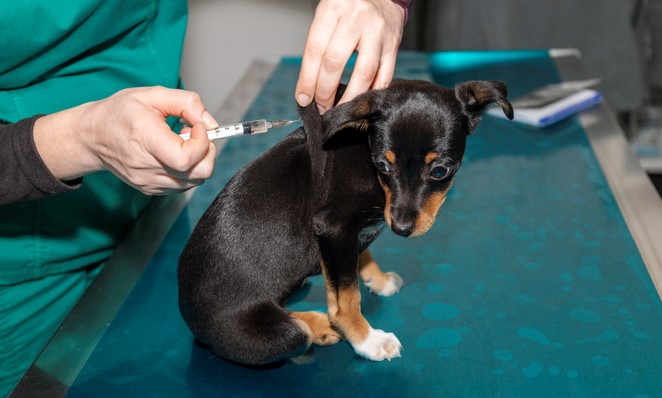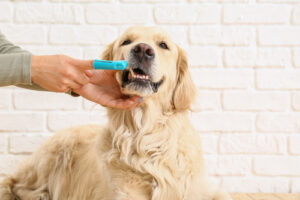Do you have a new puppy, or are you thinking of adopting one? Do you know which types of shots your new pet may need?
In our Huntington, NY, animal hospital‘s article below, you’ll find a quick list of information to help guide you through your puppy’s shots. With the help of this list, you should be prepared for the shots your dog will receive during their first several vet visits. Read on to find out more!
Core (Essential Vaccines)
Dogs and cats each have their own core vaccines that they need to stay protected from life-threatening diseases. Our 2 core vaccines recommended for puppies and dogs are listed below.
Distemper Vaccine
The first vaccine we recommend for puppies is the Distemper vaccine, or DA2PP. This stands for Distemper, Adenovirus, Parvovirus, and Parainfluenza.
Distemper is a serious disease that targets the digestive, respiratory, and nervous systems in the body, and it can be fatal in puppies, older dogs, and unvaccinated dogs. Clinical signs of infection include vomiting and diarrhea, which can cause life-threatening dehydration. Adenovirus targets the liver, Parvovirus affects the digestive and immune systems, and Parainfluenza affects the respiratory system.
At Dix Hills Animal Hospital, we administer our DA2PP vaccine to puppies every 3-4 weeks until they are about 16 weeks old. The final booster shot given will last a full year. Following this booster, your dog will need to be boosted again for DA2PP every 3 years.
Rabies
The second vaccine we will give your puppy is the Rabies vaccine. Like our DA2PP vaccine, this is one of the most important shots your puppy will need. The Rabies virus attacks the central nervous system and is always fatal in pets and has a high fatality rate in humans as well. Bats, skunks, raccoons, foxes, and feral cats are known carriers of this disease. Because Rabies is so serious, the Rabies vaccine is required by law for dogs and cats here in our state.
Your pet’s very first Rabies vaccine is typically given when they are 4-6 months of age, and the immunity it grants should last up to a year. After that first year, your dog can be boosted for Rabies every 3 years.
Optional Vaccines
In addition to our core vaccines for dogs, Dix Hills Animal Hospital also carries optional or “non-core” vaccines, which we give based on various factors including your pet’s lifestyle and risk of exposure. Certain diseases simply are not prevalent enough to warrant mandatory vaccination, but we’re happy to offer optional vaccines for pets that may need them. These include:
Bordetella
Our first optional vaccine is the Bordetella vaccine, which we administer to protect puppies and dogs against kennel cough, an airborne virus that often spreads through dog kennels, dog parks, and grooming salons. Many such places now require the Bordetella vaccine for dogs to reduce or prevent the spread of infection.
Bordetella is a type of bacteria that causes kennel cough. When puppies are infected with Bordetella, they may develop uncontrollable coughing that makes them vomit, and they may be unable to eat very well as a result.
We can administer the Bordetella vaccine to your pet orally or via injection, and it should be given once a year to remain effective. Puppies can start receiving this booster at around 10-12 weeks old.
Leptospirosis
Another optional vaccine we carry is the Leptospirosis vaccine, which protects against a bacterial infection shed in the urine of infected wildlife (foxes, raccoons, rats, opossums, etc.). Lepto is usually found in puddles, soil, and other areas where wildlife tend to urinate. If your dog happens to take a drink from standing water or walk through a puddle and then lick its feet, they could become infected with Lepto themselves. Without treatment, Lepto can be fatal, and it is also transmissible to people.
When we first administer the Lepto vaccine, we give two boosters three weeks apart. After that, the vaccine is boosted yearly to keep your pet protected.
Lyme Disease
The Lyme vaccine is also available at our hospital. Dogs can be vulnerable to Lyme disease if they live in areas populated by deer ticks, which are the primary vector for Lyme disease infection. Deer ticks can be found in wooded areas, along with thick brush and tall grass. Ticks can also be dropped by birds. Like Lepto, Lyme disease can also be transmitted to humans. Common clinical signs of Lyme disease in dogs include lameness, inflamed joints, and loss of appetite.
If you have any concerns about Lyme disease and your pet’s risks, we would be happy to discuss their needs at length and help you decide if the Lyme vaccine is right for your pup. When we give the Lyme vaccine, we start with one shot and follow up with a booster three weeks later. After that, your dog should receive the Lyme vaccine once a year to maintain their immunity.
Talk to Your Huntington, NY Vet Today About Vaccinating Your Pet
Every puppy is different, and here at Dix Hills Animal Hospital, we place great importance on customizing your pet’s care to meet their individual needs. Like you, we want your pet to stay protected, but we also want to ensure they are not being vaccinated for diseases that pose minimal risk.
Get in touch with our animal hospital in Huntington, NY for more information about puppy shots and schedule an appointment to start building up their protection! Call us at (631) 271-8383 today.





